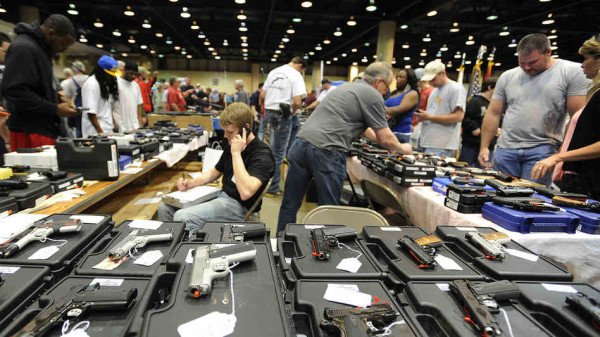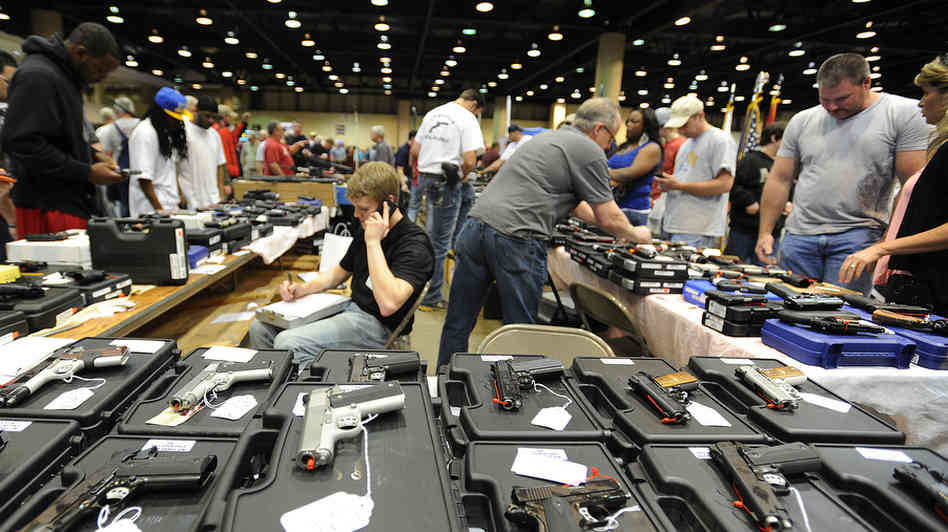Chicago police have reportedly confiscated more than 5,000 guns in the city since the beginning of the year. The city, faced with rising gun and violent crime issues, has focused police efforts on making the streets of Chicago safer. So far this year, these efforts have resulted in 32 percent more gun-related arrests than last year. As police get tough on gun crime and violent crime it is important to understand Illinois’ gun laws. Legitimate gun owners can get caught up in the crackdown on violent crime if they are not up to date on the most recent gun laws.
Who Can Buy and Own a Gun in Illinois?
Illinois requires that anyone who is interested in purchasing a gun or ammunition goes through a vetting process. Illinois residents who are interested in purchasing a gun must successfully apply for a Firearms Owner’s Identification Card (FOID). The FOID will be granted to Illinois residents over the age of 21 (or adults over the age of 18 with written parental consent) who meet certain safety criteria. FOIDs may only be issued if the applicant:
- Has never been convicted of a felony;
- Is not addicted to narcotics;
- Has not been a patient in a mental health facility in the past 5 years (unless written certification for approval is provided);
- Has not been involuntarily admitted to a mental health facility;
- Is not intellectually or developmentally disabled;
- Is not an illegal alien;
- Is not subject to an existing order of protection;
- Has not been convicted of certain crimes in which a gun was used (e.g., battery, assault, violation of an order of protection); and
- Has not been convicted of a crime of domestic violence after 2012.

There are other circumstances under which an Illinois resident may be denied the FOID. A complete list can be found here. Generally, if you are over the age of 21 and have no criminal record or history of mental health issues you should have no issues with the FOID application.
Once the FOID is granted, Illinois residents have a fairly easy path to gun ownership. When purchasing a gun or ammunition, a buyer must show a valid FOID. There is a mandatory 72-hour waiting period for handguns and a 24-hour waiting period for other firearms, including shotguns and rifles. These waiting periods, however, do not apply to guns purchased at gun shows.
Is Concealed Carry Legal in Illinois?
In Illinois, it is generally illegal to carry or possess a concealed firearm without a license. There are exceptions to this rule. You are permitted to conceal the presence of a firearm when you are on your own land, in your own home, or in your fixed place of business. You are also permitted to transport weapons to and from target ranges and while hunting, trapping, or fishing with a license. Licensed weapons must be broken down and non-functioning during transit, unloaded, and kept in a location that is not immediately accessible. Locked firearm carrying cases, containers, and trunks are generally accepted locations.
Illinois residents may, however, apply for a concealed carry permit. The Illinois concealed carry permit expands gun owner’s rights and privileges. To apply for a concealed carry permit, Illinois residents over the age of 21 must be fingerprinted and complete at least 16 hours of training. Illinois residents who have been convicted of certain crimes, are the subject of a pending criminal matter, or have been in drug or alcohol treatment program within 5 years of the application will be disqualified.
Can You Still Get In Trouble If You Have All of the Required Licenses?
Yes. Generally, Illinois residents who have both the FOID and a concealed carry permit generally enjoy the ability to own and carry a weapon freely. However, lawful gun owners must still abide by Illinois criminal and gun-specific laws and regulations. According to Chicago criminal defense attorney Gus Kostopoulos, “Illinois has some detailed and complex gun ownership laws. Those laws, which can limit when and where you can carry a gun, are constantly changing.” Reflecting back on his own practice, Mr. Kostopolous explains that it Illinois law makes it easy for legitimate gun owners to get caught up in legal trouble. “A concealed carry permit does not mean that you can bring a gun with you anywhere. The list of places where concealed carry is irrelevant is constantly growing. It is important to stay on top of these changes to make sure that you don’t mistakenly bring a firearm somewhere it is illegal to have one.”
A review of the most recent Illinois regulations indicates that a firearm may not be carried in the following locations, even with a valid concealed carry license:
- School, college, or university;
- Courthouse, government buildings, and libraries;
- Public playgrounds and parks;
- Bars or any restaurant with significant alcohol sales;
- Zoos, stadiums, and museums; and
- Permitted festivals and parades.
See how this could be tricky? For example, in Illinois, it is illegal to carry a firearm in any restaurant that attributes more than 50% of its sales to alcohol. You probably don’t know the revenue breakdown of each restaurant in Chicago. If you walk into the wrong place for dinner while carrying your gun you could face some serious consequences. Having a gun in a bar (or qualifying restaurant) is a Class 4 Felony. While you may not be the primary target of a crackdown on gun crime, you could certainly wind up in the middle of it.
What Should You Do If You Are Arrested on a Gun Possession Charge?
The first thing you should do after an arrest is contact an experienced Chicago criminal defense attorney. As the Chicago police continue to crack down on gun crimes it is possible for legitimate gun owners to stumble into legal trouble. It is important to understand your rights as a gun owner. This knowledge can help you and your attorney fight any criminal charges you may face.
